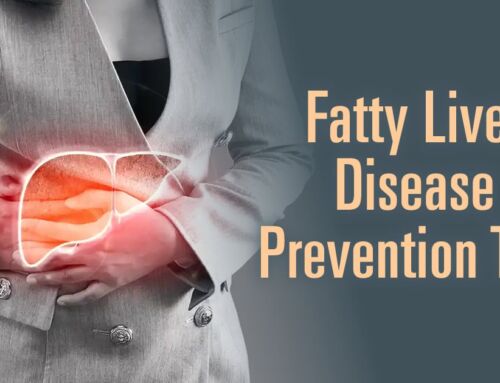Gastrointestinal (GI) bleeding is a potentially life-threatening symptom of a GI condition. It causes more than half a million hospitalizations in the United States annually and has a mortality rate of 5%-10%.
But many cases can be safely treated on an outpatient basis without medical complications. While the cause of GI bleeding is typically not serious, it’s important to recognize the signs and respond accordingly.
This article will discuss the types of GI bleeding and the symptoms you should be aware of. We’ll also highlight the common conditions that can cause GI bleeding. Lastly, this article will outline when you should see a doctor and how GI bleeding is diagnosed. Keep reading to learn more about GI bleeding.
What Is GI Bleeding?
GI bleeding refers to bleeding that occurs anywhere in the gastrointestinal (GI) tract. This includes the esophagus, stomach, small intestine, colon, rectum, and anus.
Bleeding in the esophagus, stomach, and first part of the small intestine (duodenum) is upper GI bleeding. Whereas lower GI bleeding occurs in the remaining parts of the small intestine (jejunum and ileum), colon, rectum, and anus.
The ligament of Treitz, a band of tissue in the small intestine, connects the duodenum and jejunum. This serves as an anatomical landmark that differentiates between upper and lower GI bleeding. Bleeding above the ligament of Treitz is an upper GI bleed and bleeding below this ligament is a lower GI bleed.
Types of GI Bleeding
Bleeding in the GI tract can range from mild to severe. The types of GI bleeding include:
- Acute. Acute GI bleeding is sudden, heavy bleeding that can pose a medical emergency. It’s a severe form of bleeding that can cause your body to go into shock.
- Chronic. Chronic GI bleeding is bleeding that occurs over a more extended period of time. This type of bleeding may come and go and is typically less severe.
- Occult. Bleeding from the GI tract that isn’t visible to the naked eye is occult bleeding. In this case, GI blood loss is only detected microscopically through laboratory testing. This type of GI bleeding is chronic.
- Overt. Overt GI bleeding refers to acute bleeding that shows visible signs of blood loss. You may notice bleeding due to changes in the appearance of your vomit or stools.
- Obscure. Obscure GI bleeding is recurrent blood loss that doesn’t have a known source even after endoscopic examination. This type of GI bleeding typically originates in the small intestine.
Symptoms of GI Bleeding
GI bleeding can present with a wide variety of signs, with some more serious than others. It may cause rectal bleeding or bloody vomit. The symptoms of GI bleeding differ depending on the location and how quickly you bleed.
For example, acute upper GI bleeding often results in vomiting red blood or material that looks like coffee grounds. Vomiting blood is a sign of moderate to severe GI bleeding, whereas vomiting coffee-ground-like material usually suggests mild blood loss.
Acute upper GI bleeding may also cause the formation of black, tarry stools. But this can also occur with bleeding from the colon and varying degrees of blood loss. Bright red or maroon blood in the stool is usually a sign of lower GI bleeding. But massive bleeding in the esophagus, stomach, and first part of the small intestine can also cause this symptom.
Massive blood loss can cause hypovolemic shock. This life-threatening condition occurs when your heart can’t pump enough blood throughout your body. Symptoms of shock include low blood pressure, rapid pulse, reduced urine output, and unconsciousness.
Hidden or occult bleeding can lead to the development of iron deficiency anemia. This can cause dizziness, lightheadedness, shortness of breath, and fatigue. Other symptoms of GI bleeding include abdominal cramps or pain, unexplained weight loss, and weakness.
Causes of GI Bleeding
Bleeding can occur in both the upper and lower GI tract. Upper GI bleeding is more common and occurs in around 70% of cases. Lower GI bleeding is less common and makes up roughly 30% of major GI bleeds.
Upper GI Bleeding
The following conditions are some of the most common causes of upper GI bleeding:
- GERD. The repeated reflux of stomach acid backward into the esophagus can erode the inner lining and lead to bleeding.
- Esophageal cancer. Advanced esophageal cancer can cause bleeding in the esophagus, which may be gradual or sudden.
- Peptic ulcer disease. This condition causes open sores in the stomach and upper part of the small intestine. The most common symptom of peptic ulcer disease is upper abdominal pain, which can result in bleeding.
- Mallory-Weiss tear. Violent coughing or vomiting can tear the tissue in the lower esophagus and cause bleeding.
- Dieulafoy lesion. This is an abnormally large artery in the stomach that can lead to massive, recurrent bleeding.
- Esophageal varices. This condition occurs when blood vessels leak or rupture, which can cause massive bleeding.
Lower GI Bleeding
Common causes of lower GI bleeding include:
- Diverticular disease. Small pouches in the large intestine can bleed and cause blood in your stool.
- Angiodysplasias. This vascular abnormality is the second most common cause of lower GI bleeding. In rare cases, angiodysplasia can cause heavy blood loss.
- Inflammatory bowel disease (IBD). This condition includes both ulcerative colitis and Crohn’s disease. Ulcerative colitis can cause bleeding ulcers in the colon and rectum. Crohn’s disease also causes chronic inflammation in the GI tract, which can lead to bleeding.
- Colon polyps. The abnormal growth of tissue in the colon can cause bleeding. Some colon polyps can develop into colon cancer.
- Tumors. GI bleeding can signify benign or cancerous tumors in the colon, rectum, and anus.
- Hemorrhoids. This is the most common cause of GI bleeding in people under 50 years of age.
- Anal fissures. Passing hard stools can cause small tears in the anus. This can cause bright red rectal bleeding.
When to See a Doctor for GI Bleeding
You should see a doctor for all types of GI bleeding. Blood in your vomit or stool is never normal and needs to be evaluated by a doctor. While the cause of GI bleeding is usually not serious, it’s important to rule out any underlying conditions.
Occasional bleeding that occurs in smaller amounts and is bright red is not a medical emergency. But you should still see a doctor as soon as possible. Sudden or consistent bleeding that occurs in more significant amounts needs urgent medical attention. This type of bleeding often causes maroon or black stools. It may also occur with other symptoms like abdominal pain.
If you notice any GI bleeding, you should talk to your doctor as soon as possible to avoid medical complications. Bleeding, even in small amounts, needs a proper diagnosis from a trained medical professional. What you think may be bleeding hemorrhoids could actually be a symptom of colon cancer.
How Is GI Bleeding Diagnosed?
When diagnosing GI bleeding, your doctor will first take a thorough look at your medical history, medication history, and symptoms. Medications such as antiplatelets, anticoagulants, and NSAIDs increase the risk of GI bleeding. A family history of colon cancer or IBD is also a risk factor.
Next, your doctor will complete a physical examination, which includes an abdominal examination. If your doctor suspects a lower GI bleed, this may also include a digital rectal examination.
Based on all these factors, your doctor can determine the severity of bleeding, potential causes, and if other medical conditions may affect treatment. Your doctor will then perform additional testing to find the source of your blood loss.
The following tests can help diagnose GI bleeding:
- Blood test. Low levels of hemoglobin in the blood can detect anemia.
- Upper endoscopy. This test can locate, identify, and treat bleeding lesions in the esophagus, stomach, and first part of the small intestine.
- Balloon endoscopy. This test can examine and treat bleeding in the small intestine. A balloon surrounds the endoscope, which allows it to move further into the GI tract than other tests.
- Colonoscopy. This test can locate, identify, and treat bleeding lesions in the colon and rectum.
- Fecal occult blood test. This test can detect hidden blood in the stool.
- GI x-rays. There are a few radiology studies that can be done to help localize and treat the source of bleeding.
How to Prevent GI Bleeding
Depending on the amount of blood loss, GI bleeding can have mild or severe impacts on your health. Many people experience GI bleeding due to common digestive conditions such as hemorrhoids. But GI bleeding can also be life-threatening.
You can prevent GI bleeding by treating the conditions that can cause bleeding. Working with your doctor can help manage your symptoms if you have a known digestive condition. You can also improve your digestive health naturally through gut-friendly foods and exercise.
Avoiding non-steroidal anti-inflammatory drugs (NSAIDs) is another proactive way to reduce your risk of GI bleeding. NSAIDs can damage the mucous throughout the entire GI tract, which can cause overt or occult bleeding. Getting screened for colon cancer can also reduce your risk of GI bleeding. This test can detect colon polyps and remove them before they turn into colon cancer.
You should contact your doctor immediately if you experience any symptoms of GI bleeding. Receiving timely treatment can often prevent medical complications. For more information about GI bleeding or other digestive health conditions, call our office at 210-615-8308 or schedule an appointment online.



